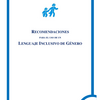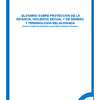About the Network
The Regional Safe Spaces Network is an inter-agency coordination mechanism that was developed in the Americas Region in 2016 and launched in 2017 with the support of UNHCR’s Regional Legal Unit (RLU) of the Americas Bureau.
Toolkit
The Network has developed common standards and tools to promote cross-border coordination in the region.
Online Map
Geographical location of those partner agencies and allied organizations that are part of the Network.

Press release
The Regional Safe Spaces Network (hereinafter RSSN or “the Network”) was established in the Americas region in 2017 with the support of the UNHCR’s Regional Legal Unit of the Americas Bureau (RLU), and particularly its Sexual and Gender-based Violence (SGBV) and Child Protection (CP) team (RLU SGBV/CP). The Network coordinated by the RLU SGBV/CP led the development and implementation of a regional protection strategy to address the needs of people displaced as a result of violence and persecution and other people on the move. In consultation with partners and communities the Network focused on improving access to essential services for women, girls, but also men and boys survivors of SGBV, children at risk, LGBTI1 people with protection needs, and other people affected by serious human rights violations. At present, more than 110 organizations providing services in seven different countries3 are members of the Network and it is expected that new members and countries will join it in the coming months.
SGBV / Sexual and Gender-based Violence
Gender Inclusive Language Recommendations ("Recomendaciones para el uso de lenguaje inclusivo de género", in Spanish)437 KB
UN High Commissioner for Refugees (UNHCR), February 2018
Sexual Gender-Based Violence and Child Protection Glossary ("Glosario Sobreprotección de la Infancia, Violencia Sexual y de Género y Terminología Relacionada", in Spanish)373 KB
UN High Commissioner for Refugees (UNHCR), February 2018
Workshop Regional Safe Spaces Network
A total of forty-five (45) participants from seventeen (17) countries in the Americas region gathered in San Jose, Costa Rica (3-5 December 2018) to discuss the content of the RSSN toolkit, plan its implementation and share good practices. IOM, UNFPA, UNFPA, the Ministry of Women of Peru, the Child Protection Welfare Department of Venezuela, NGOs and UNHCR focal points were among them. The UNHCR’s Division of International Protection, and the Regional Office Nairobi, Kenya joined the event as well. The Human Rights Center of UC the Berkeley School of Law provided support to the event.


